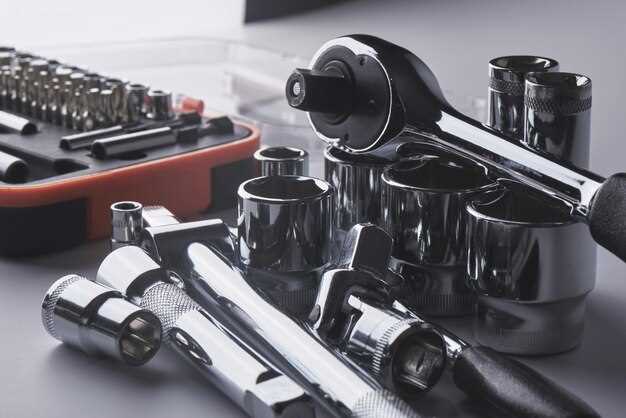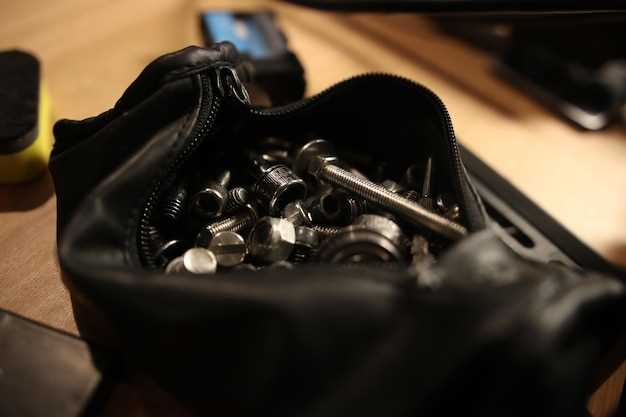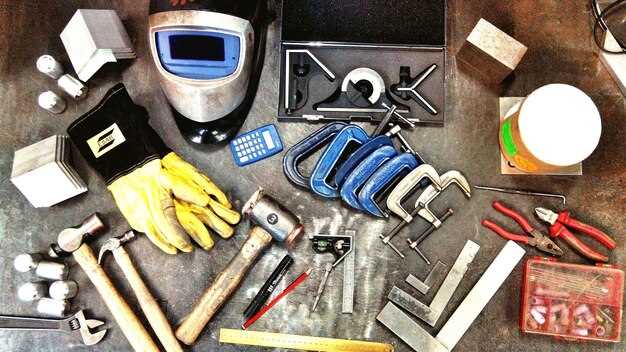
When it comes to auto repair, having the right tools is essential for anyone looking to tackle DIY projects at home. Whether you’re a seasoned mechanic or a novice enthusiast, the right tools can make all the difference in the efficiency and effectiveness of your repairs. With a wide array of options on the market, it is crucial to identify which tools will best serve your needs for auto parts replacement.
In this article, we will explore the top tools that every DIY auto repair enthusiast should have in their toolkit. From basic hand tools to specialized equipment, we will cover everything you need to successfully complete tasks ranging from routine maintenance to more complex repairs. Investing in quality tools not only saves time but also enhances the overall quality of your work, allowing you to achieve professional-grade results from the comfort of your garage.
Moreover, understanding how to properly use these tools can empower you to take on challenging projects with confidence. By following our guide, you’ll be well on your way to mastering the art of auto repair at home. Prepare to discover the essential tools that will equip you for any job, giving you the ability to confidently replace auto parts and maintain your vehicle at its best.
Must-Have Hand Tools for Auto Repair
When it comes to auto repair at home, having the right hand tools is essential for efficiency and effectiveness. A well-equipped toolbox can make all the difference in tackling automotive tasks with confidence. Here are some must-have tools for any DIY enthusiast looking to perform auto maintenance and repair.
First on the list is the set of wrenches. An adjustable wrench, along with a variety of combination wrenches, allows for the loosening and tightening of nuts and bolts in different sizes. This versatility is crucial for accessing tight spaces within the engine compartment.
Next, a ratchet and socket set is indispensable. Sockets in various sizes enable the quick removal and installation of bolts. Paired with a ratchet handle, this tool enhances the speed and convenience of repair tasks, significantly reducing the effort required when working on vehicles.
A reliable screwdriver set is also essential, featuring both flathead and Phillips head screwdrivers. These tools are commonly used for a range of applications, from securing components to accessing panel fasteners during repairs.
Additionally, having a torque wrench is critical for ensuring that bolts are tightened to the manufacturer’s specifications, particularly on critical engine components. This precision tool helps prevent damage that could occur from over-tightening.
Another useful tool is a punch and chisel set. These tools can aid in removing stubborn pins or bolts, making it easier to repair or replace various auto parts. They are particularly helpful in tackling rusted or corroded components.
Don’t forget about a mechanics tool set. These pre-organized kits typically include a variety of hand tools needed for auto repair, such as pliers, wire cutters, and basic hand tools that simplify everyday repairs.
Finally, a work light is an often-overlooked yet crucial tool for any DIY repair job. Good lighting can illuminate dark engine compartments or undercarriages, ensuring you can see what you are working on and avoid mistakes.
By equipping your home garage with these essential hand tools, you can effectively tackle a broad range of auto repairs, empowering you to maintain and improve your vehicle with confidence.
Essential Power Tools for Quick Parts Replacement

When it comes to DIY auto repair, having the right power tools can significantly streamline the process of parts replacement. These tools not only save time but also ensure accuracy and ease of use. Below are some essential power tools that every DIY enthusiast should consider for efficient auto maintenance.
Impact Wrench is a must-have for loosening and tightening lug nuts quickly. This powerful tool delivers high torque output with minimal effort, making it ideal for wheel changes and suspension work. With a cordless option available, it enhances mobility, allowing you to work in tight spaces without worrying about power outlets.
Electric Ratchet provides a compact solution for those hard-to-reach areas. Unlike a traditional ratchet, an electric ratchet speeds up the process, making it perfect for tasks that require repetitive fastening and loosening. This tool is especially useful for removing engine parts and other components where space is limited.
Cordless Drill serves multiple purposes, from drilling holes to removing screws. A versatile drill is essential for any DIY auto project, offering various attachments to accommodate different tasks. Ensure that you invest in a drill with adjustable torque settings for precise control.
Sawzall (Reciprocating Saw) is ideal for cutting through metal and other materials when removing damaged parts. This tool’s versatility allows you to tackle various types of repairs, from bodywork to exhaust replacement. With the right blade, it can easily handle different materials encountered during automotive repairs.
Angle Grinder is another invaluable tool for auto repairers, particularly for cutting, grinding, and polishing various components. Its ability to easily remove rust, paint, or weld material makes it indispensable during restoration projects or for preparing parts for replacement.
By investing in these essential power tools, you can enhance your DIY auto repair capabilities, ensuring that parts replacement is both quick and effective. Whether you’re an experienced mechanic or just starting out, having the right power tools will make your repairs easier and more enjoyable.
Safety Equipment for DIY Auto Repair Projects

When engaging in DIY auto repair projects, safety should always be your top priority. Having the right equipment can prevent accidents and injuries, making your repair experience both safe and efficient. Below are essential safety items that every DIYer should consider.
1. Safety Glasses: Protecting your eyes is crucial when working with mechanical components. Safety glasses shield against flying debris, fluid splashes, and other hazards encountered during auto repairs. Opt for lenses with anti-fog and scratch-resistant coatings for better visibility.
2. Mechanic Gloves: A good pair of mechanic gloves provides a barrier between your hands and harsh substances like oil, grease, and chemicals. Look for gloves that offer both dexterity and durability, allowing you to handle tools and parts with ease while keeping your hands protected.
3. Steel-Toed Boots: Footwear is often overlooked, but steel-toed boots can protect your feet from heavy components that might accidentally fall during repairs. Choose boots with slip-resistant soles to ensure stability on different surfaces.
4. Hearing Protection: If your DIY auto projects involve loud tools, such as grinders or impact wrenches, it’s important to protect your hearing. Earplugs or earmuffs can significantly reduce noise exposure and help maintain your auditory health.
5. Respirators or Masks: When working with chemicals or substances that emit fumes, using a respirator or mask is essential. This equipment can safeguard your respiratory system from harmful particles and vapors that can be harmful in poorly ventilated areas.
6. Fire Extinguisher: In any garage or workspace where flammable materials are present, having a fire extinguisher is a must. Familiarize yourself with its use and ensure it is easily accessible in case of an emergency.
7. First Aid Kit: Accidents can happen even to the most cautious DIYers. Equip your workspace with a well-stocked first aid kit to address minor injuries promptly. Include items such as band-aids, antiseptics, and gauze to handle cuts and scrapes effectively.
By investing in high-quality safety equipment, you can mitigate risks associated with DIY auto repair projects. Always remember that safety is an integral part of the repair process, allowing you to focus on the task at hand without unnecessary worry.
